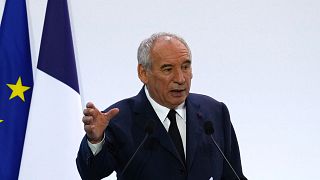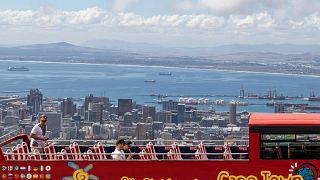South Africa
South Africa’s unemployment rate jumped to its highest since the global financial crisis more than a decade ago, data showed last week, piling pressure on a shrinking economy and President Cyril Ramaphosa’s pledge to deliver a turnaround.
The increase in joblessness was preceded by a sharp rise in jobless claims from the Unemployment Insurance Fund (UIF) between 2018 and 2019. Claims rose 21% to 9.2 billion rand, $60.3M the labour department said.
“The increased payment in the unemployment benefit could be attributed to retrenchments that have plagued the country due to subdued economic growth,” the Department of Unemployment and Labour said.
Job cuts across a host of sectors are set to continue into the next few years.
“Like, it’s month end, now I have to be looking for specials, my little brother’s got a son. I have to go buy nappies. I have to be looking specials, I have to go buy food. I mean, I’m the only sole breadwinner at the age of 30. What else, it’s traumatic,” said Alexandra Resident, Lindiwe Mafa.
In February, the National Treasury said unemployment payments would increase to nearly 16 billion rand about $1.073B by 2021,
“So I think South Africa has been growing structurally like a developed country. So the sectors that have been growing fast have been sectors like the finance sector, construction sectors and these sectors belong to the non-tradeable sectors. So these are sectors that cannot be traded and we cannot get revenues from them,” said Economic Analyst, Dr Thabi Leoka.
The unemployment data also showed about 8.2 million, or 40.3%, out of 20.4 million people aged 15-34 years, were not in employment, education or training,underlining the social and political dangers posed by the high jobless rate.
Labour unions which supported Ramaphosa’s campaign have threatened to embark on strikes over retrenchments.
Hopes Fade as South Africa’s Unemployment Hits Record High: Country's statistics bureau says nearly one in three South Africans out of work https://t.co/WpOM7mqsJh pic.twitter.com/83csk3jJdr
— VOA Africa (@VOAAfrica) August 6, 2019
The ruling ANC gave tentative support of the Reserve Bank’s mandate last week, but said it wanted it nationalized, a move the bank’s governor has warned was scaring off investors.













Go to video
Trump tariffs put 35,000 South African citrus jobs at risk, farmers warn
Go to video
Libya devalues currency for first time in four years amid fiscal strain
01:59
Tunisians observing Ramadan turn to snails as meat prices soar
04:04
DR Congo's Goma faces economic and financial crisis following M23 takeover
Go to video
Nigerians outraged as telecom giants hike data prices amid economic hardship
01:10
Inflation in Zimbabwe rises by 10% in January